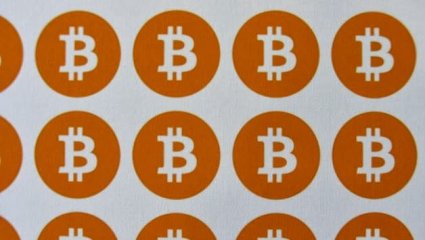Bitcoin to dollar exchange rate
 While bitcoin could one day kill most of the roles that the Fed plays, monetary policy will probably stay intact. The reason for this, as I'll show, is that the no matter what happens to all its other functions, the Fed will probably continue to define the economy's unit of account.
While bitcoin could one day kill most of the roles that the Fed plays, monetary policy will probably stay intact. The reason for this, as I'll show, is that the no matter what happens to all its other functions, the Fed will probably continue to define the economy's unit of account.
Let's start in the present day US. Most modern transactions involve transfers of dollar banknotes, reserves, or dollar-denominated bank deposits. A small minority of transactions are made with bitcoin. But these transactions are rarely priced in terms of bitcoin. Rather, a merchant's website will typically display prices in terms of dollars, and then compute the amount of bitcoin that a customer must fork over by referring to the current dollar-to-bitcoin exchange rate. The dollar is very much the the unit of account in the US, not bitcoin.
The first of the Fed's functions to be killed off by bitcoin will inevitably be the issuance of paper banknotes. Bitcoin enjoys all the benefits of cash, on top of which it can be transferred instantaneously over long distances. Bulky hand-to-hand paper simply can't compete. Unwanted notes will reflux back to banks and then to the Fed. From there Fed officials will cancel and destroy them, the Fed's balance sheet shrinking to a fraction of its previous level. Paper dollars will now be extinct, and the Fed much smaller.
Even with its printing presses idled by bitcoin mania, the Fed will still continue to issue reserves. Reserves are used by banks in the interbank market to settle cheques and make large value payments, normal people don't get to own them.
The Fed has traditionally not paid a pecuniary rate of return on reserves. In other words, it hasn't offered interest. Banks have been willing to hold barren reserves because in addition to their usefulness as payments media, the Fed has exercised its monopoly powers to keep their supply artificially scarce. This combination of usefulness and scarcity conspire to produce significant non-pecuniary benefits that bankers will eagerly pay to enjoy. After all, any banker that holds a base level of scarce reserves can rest easy knowing that they are well-prepared for an uncertain future—a banker that forgos them must bear the discomfort of being ill-equipped to deal with unforeseen events.
The Fed can alter the relative scarcity of reserves via open market operations. This in turn either increases or decreases the non-pecuniary return on reserves, or their marginal usefulness. If increased, the rush to buy reserves causes economy-wide fall in the price level. If decreased, a rise ensues. Thus even though bitcoin has rendered cash extinct, the Fed's power over the economy isn't diminished one iota since prices continue to be priced in the dollar unit of account, and the Fed's artificially scarce reserves are effectively the medium that defines the unit.






